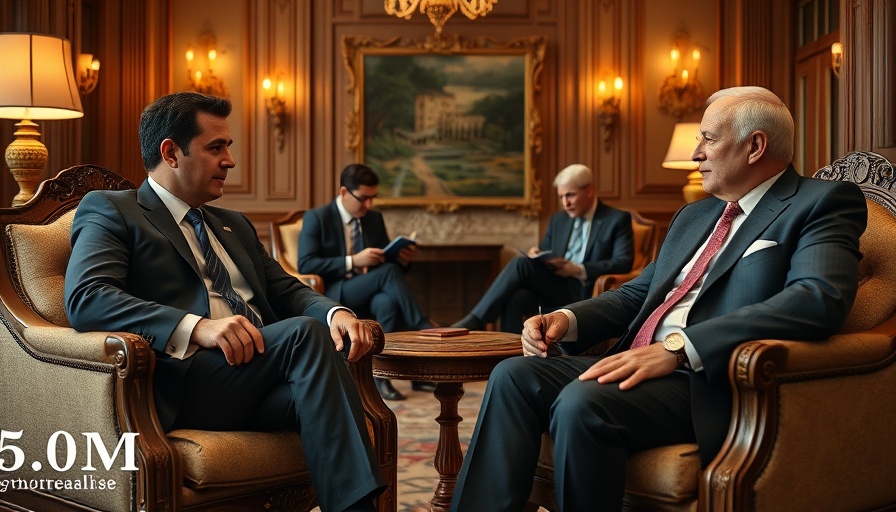
Trump's Nonchalant Approach to Trade Deals with India
In a recent interview, President Donald Trump made waves by suggesting that India has offered to eliminate all tariffs on U.S. goods while simultaneously downplaying the urgency of finalizing a trade agreement. This statement comes as India positions itself as a key player in the global economy and the U.S. seeks to strengthen its export markets.
The Broader Economic Context
This development reflects a broader strategy aiming to reduce trade barriers with significant economies like India, the world's fourth-largest economy. For CFOs and CEOs, understanding these dynamics is crucial as they directly impact U.S. competitiveness in international markets. The significance of India's offer and the U.S. response not only shapes trade policies but also influences global economic conditions and labor market trends.
Implications for U.S. Businesses
While tariffs are often seen as necessary tools for protecting domestic industries, they can also lead to increased costs for U.S. companies trying to compete globally. If India follows through on its tariff reduction, this could create new opportunities for American businesses, particularly in sectors that have been historically constrained by high tariffs. As strategic planning executives, understanding these potential shifts is vital for anticipating market disruptions and modifying fiscal policy insights accordingly.
Future Predictions: Will the Deal Materialize?
Given Trump's nonchalant attitude towards the negotiations, it’s uncertain when or if this trade deal will come to fruition. However, analysts suggest that if the U.S. and India can align economically, it could stimulate growth and forge a stronger economic partnership. For investors, the unfolding situation offers a mix of opportunity and risk, necessitating a keen eye on both workforce economics and interest rate impacts through the negotiation process.
Actionable Insights: Preparing for Trade Changes
CFOs and business leaders should be proactive by reevaluating their supply chain economics in light of potential tariff changes. Adjusting your operational strategies now could mitigate future economic impacts and ensure your organization remains competitive. Monitoring inflation response strategy and recession readiness will further bolster your organization against economic volatility.
In conclusion, while Trump remains in no rush to secure a trade agreement, the implications of India’s offer could reshape the economic landscape. Business leaders who stay informed and adaptable will be better positioned to capitalize on emerging opportunities as global trade dynamics evolve.
 Add Row
Add Row  Add
Add 




Write A Comment